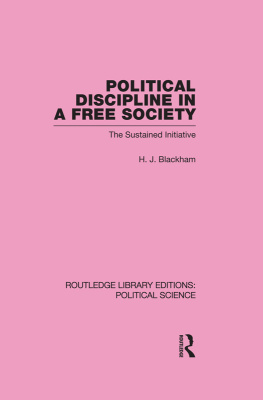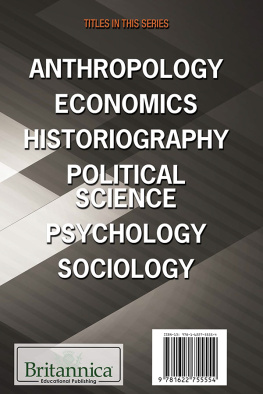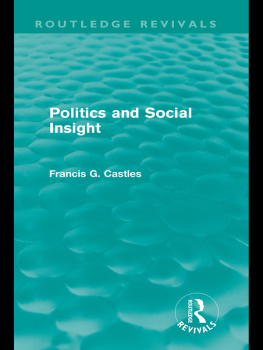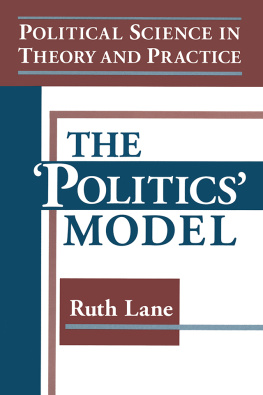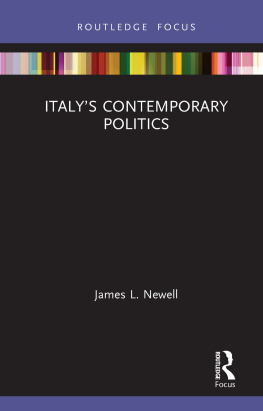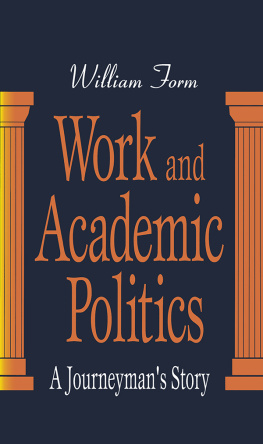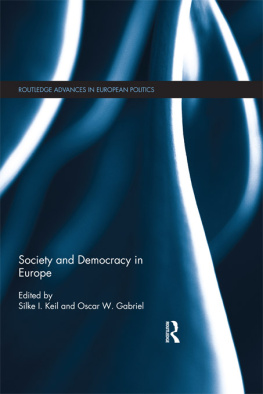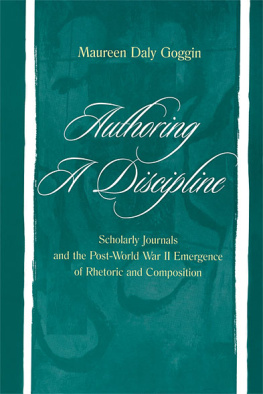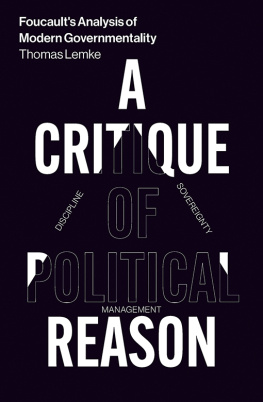ROUTLEDGE LIBRARY EDITIONS:
POLITICAL SCIENCE
POLITICAL DISCIPLINE IN
A FREE SOCIETY
POLITICAL DISCIPLINE IN
A FREE SOCIETY
The Sustained Initiative
By
H. J. BLACKHAM
Volume 40
First published 1961
This edition first published in 2010
by Routledge
2 Park Square, Milton Park, Abingdon, Oxon, OX14 4RN
Simultaneously published in the USA and Canada
by Routledge
270 Madison Avenue, New York, NY 10016
Routledge is an imprint of the Taylor & Francis Group, an informa business
1961 George Allen and Unwin Ltd.
All rights reserved. No part of this book may be reprinted or reproduced or utilised in any form or by any electronic, mechanical, or other means, now known or hereafter invented, including photocopying and recording, or in any information storage or retrieval system, without permission in writing from the publishers.
British Library Cataloguing in Publication Data
A catalogue record for this book is available from the British Library
ISBN 10: 0-415-49111-8 (Set)
ISBN 13: 978-0-415-49111-2 (Set)
ISBN 10: 0-415-55581-7 (Volume 40)
ISBN 13: 978-0-415-55581-4 (Volume 40)
Publishers Note
The publisher has gone to great lengths to ensure the quality
of this reprint but points out that some imperfections in the original
copies may be apparent.
Disclaimer
The publisher has made every effort to trace copyright holders and
would welcome correspondence from those they have been unable
to trace.
H. J. BLACKHAM
Political Discipline in
a Free Society
THE SUSTAINED INITIATIVE
Well, Burke is rightbut Burke is often
right, only he is right too soon
CHARLES JAMES FOX
London
GEORGE ALLEN & UNWIN LTD
RUSKIN HOUSE MUSEUM STREET
FIRST PUBLISHED IN 1961
This book is copyright under the Berne Convention. Apart from any fair dealing for the purposes of private study, research, criticism or review, as permitted under the Copyright Act, 1956, no portion may be reproduced by any process without written permission. Inquiries should be addressed to the publishers.
George Allen and Unwin Ltd. 1961
Preface
THE CHAPTERS of this essay in revision are strung on old radical slogans of the movement of thought which has made the running and is now loudly declared, in various terms, to have forced the pace and to have headed in the direction of doubt and disaster. Although this is nonsense, there is no sense in pretending that eighteenth century faith in enlightenment and emancipation, or in reason and nature, is active and persuasive today in Western industrial democracies. The social enthusiasm of that time cannot be recaptured, but to look back on what happened then and later and to gain a vision of what is now practicable is the source of new energy to supply a flagging political impulse.
Current social analysis tends to be gloomy. We are tormented by dilemma and confused by paradox: on the one hand, we are overorganized and stifled, on the other, we are not organized enough to keep anything under control; unprecedented expenditure on security buys unprecedented insecurity; and all this unbearably familiar kind of thing. Whether these frustrations induce sluggishness or anger, scepticism or anxiety, the consequences are uniformly unhealthy.
There is no remedy in shrugging off these contemporary judgements of society, however loose and ill-founded many of them may be; they make the intellectual and moral climate of the time. Therefore, echoes of them reverberate throughout this book. Dominating these undertones, the essential theme is that we can bring things under due, not undue, control if we learn how to learn from political experience, and that enlightenment on this theme, how to learn from political experience, is the main present business of political philosophy.
Science is the conspicuous example of having to learn how to learn from experience and of success in doing so. It used to be thought that the methods of science might be applied equally successfully to political thinking: Bentham, or some other, was to be the political Newton. Undoubtedly, progress in political thinking was made on these lines. But the techniques of learning from political experience have not been and cannot be quite the same as those which have enabled us to find out what goes with what and what follows what.
Political knowledge is not a science, for it is knowledge in the social field of what one wants, of what one can get, and of how to get it. This is not a universal public knowledge, and in so far as people want different things in the social field, it cannot be so. But it can be a knowledge derived from a shared experience initiated by a shared intention, and in so far as it is so it is a personal knowledge with a public aspect, not the same for all, but under test and objective control all the same, not fantasy, not even mere opinion, nor mere self-interest. Cumulative learning from social experience in this way, whether it unite or divide, is the only intelligent method of vigorous democratic self-determination, and its necessary conditions ought, therefore, to be a subject of critical study in an enlightened democracy.
The first two chapters are mainly retrospective, and give as good reasons for hope yesterday as for none today; the third is an interlude; and the second half of the book is an attempt, in consideration of what has been done and what has happened, to see and to show what ought now to be thought: to construct a political imperative which can be acknowledged because there is no alternative so reasonable and none more practicable, and which is not too general to be useful nor too specific to claim general assent.
Chapter I
Liberty, Equality, Fraternity
Argument
EDMUND BURKE, champion of the resistance in the eighteenth century to an exchange of faith in God for faith in man, appears today not as intellectual hero of a lost cause but as vindicated prophet and spokesman of the English political genius. The ideas of 1789 seem to have brought little good to anyone, least of all France, and the ideas of 1848 have issued in a cold world war tense with mischief, a wrecking malevolence in train for a war verily to end war.
This reading of history is not exactly refuted, but the invective daily pumped up against imperialist warmongers and against capitalists and landlords certainly does exhibit a different view of things, and does recall what used to be said in some quarters about kings and priests. Both sides can sling their slogans till paradise unites with utopia. Only a sober return to history justifies the ways of early rationalists and radicals to modern man.
The rationalists and radicals in question, not only Tom Paine and Rousseau, but also Diderot and Condorcet, Bentham and even Hume, and many others, earlier and later, were hardly of the same party, and certainly not of the same intellectual family, but they fought against a tradition and they fought already in a tradition, the cause of free inquiry for the sake of reliable and useful knowledge, the cause of common sense and humanity. Burke was not on their side.
The idea that man is the maker of man, through the remaking of institutions, which in one form or another inspired eighteenth century thinkers, and rationalized the confidence in themselves of the ascendant bourgeoisie, found less favour with nineteenth century thinkers (typically contemptuous of the bourgeoisie) who were preoccupied more with the laws of history than with the law of the constitution, and saw the generations as players cast for their roles, not lords of their destiny, even when such masterful spirits as Bismarck and Cavour were on the stage, and the proletariat had nothing to lose but their chains

